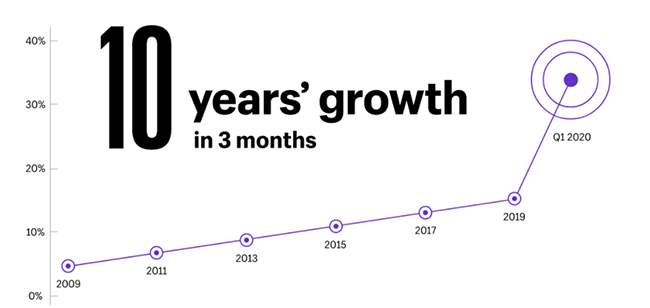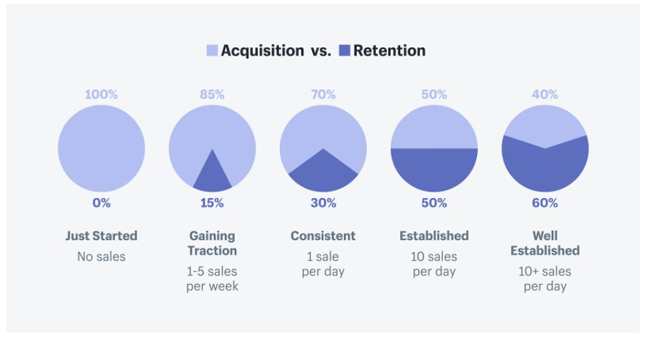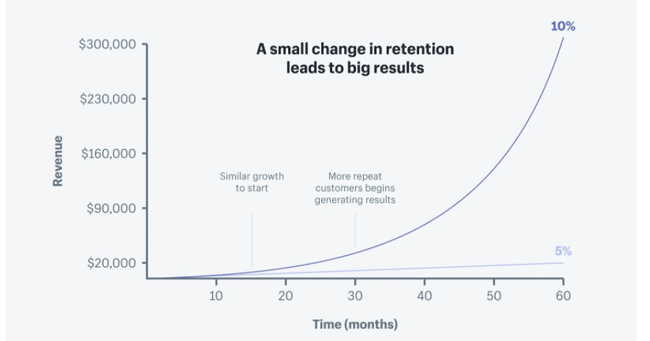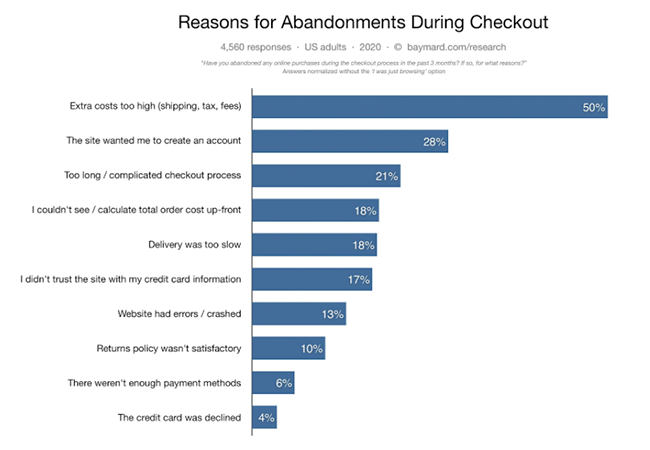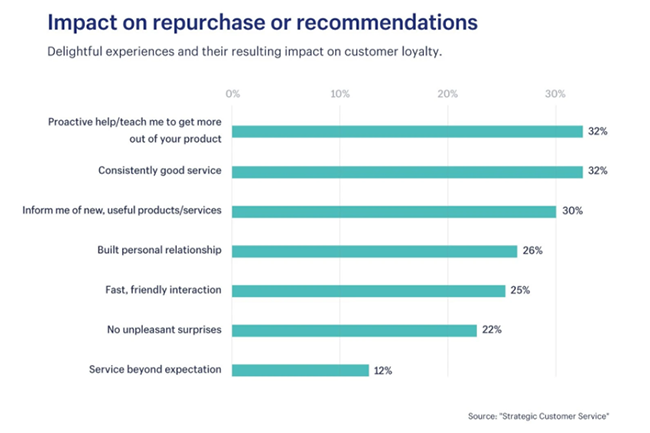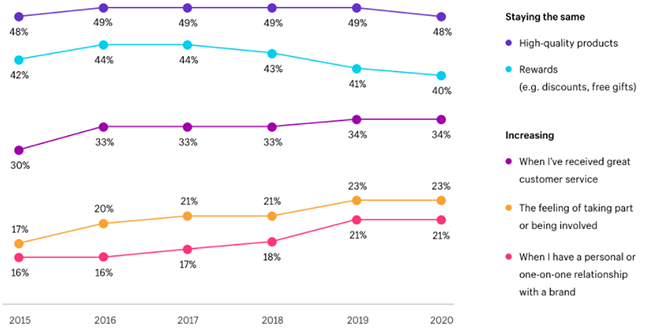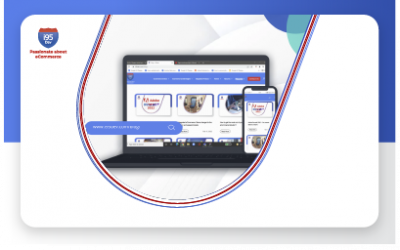How To Boost Your Shopify Store’s Brand Awareness & Customer Retention

We have finally entered 2021, and as the vaccination drives gear up, eCommerce stores are working hard to boost their brand awareness and retain the customer base built during lockdowns. At i95Dev, we witnessed a huge surge in demand for cloud ERP platform integration services throughout the second phase of 2020. To help our customers and our online community, we decided to come up with a blog to talk about boosting brand awareness and customer retention. We have covered tips and tricks for Shopify store owners, which can be equally beneficial with web stores that are yet to be launched.
What Is Customer Retention for Online Stores And Why Do You Need It In 2021
For eCommerce stores, customer retention not only means revisiting customers that make a purchase, but it also includes increasing the average lifetime customer value, frequency, billing amount, and reduced cart abandonment. While online shopping was the new normal during the Covid-19 lockdowns, it won’t be mandatory in the upcoming days. One of the biggest outcomes for online businesses was the fact that they achieved 10 years’ growth in a mere one quarters time, making the sector more lucrative than ever before. Retaining the newly acquired customer base is, therefore, the top priority for eCommerce stores.
Below are the expected CAGR figures for various countries in 2020-24:
Tips and Tools for Improving Your Shopify Store’s Customer Retention
Getting repeated business is both easier and cost effective, making customer retention as important as customer acquisition. The below infographic shows the importance of having good customer retention for a Shopify store:
Even smaller achievements in customer retention can boost your revenue significantly. In the below graph, you can visualize the impact of customer retention on your balance sheets as well as the cushioning it provides to your operations:
- Make creating a user account (with a few simple steps) a mandatory step to gather customer information. This helps you understand the buyer persona and run marketing activities in the future.
- You should run email marketing campaigns for sending product recommendations and sales notifications based on the purchase history.
- Use social proof to reinforce your marketing copies. It is always desirable to have a smooth user experience, but if your customers face any problems, take it as an opportunity to establish a positive reputation. Hearing their complaints and extending quick support can help turn agitated customers into happy customers recommending your store.
- Email campaigns coupled with social media marketing works great; sending discount offers and personalized emails on personal events like birthdays goes a long way in retaining your customer base.
- Even getting back a few percentages of abandoned cart business reduces a lot of pressure on your customer retention while it also supplements your customer retaining activities by addressing the below problems:
In the below infographic, the impact of various strategies on repeat business is summarized:
- One-Click Social Login is a great app that allows your customers to create an account using their social media accounts.
- Yotpo effectively gets customer reviews for social proof, while Rewards and Referrals by Swell are great for engaging customers through incentivizing transactions.
- We firmly believe that all businesses should build their email lists, and OptinMonster is one of the best tools for building hygienic mailing lists.
- Salesforce, Freshdesk, and Zendesk are among the most popular client servicing channels that come with tonnes of premium features.
Brand Awareness Hacks and Tools For Your Shopify Store
The first step to successful branding for your Shopify store starts with gathering customer data. Personalization helps decide your branding strategy and run campaigns for target customer bases, but it is also one of the major challenges for eCommerce stores. Following shortcomings make personalization a challenging task:
- Seguno and Oberlo will help you fulfill your personalization needs with data collection.
- i95Dev’s Shopify ERP integrations team suggests using apps like Hootsuite and Reputology to discover social mentions, buzzwords, and positive-negative opinions regarding your brand.
- Next comes devising an outreach strategy, and HubSpot can be an extremely good tool for running your marketing campaigns and branding initiatives. If you are looking for full-scale efforts, Trello is a wonderful tool for streamlining the workflows.
- Feedly and BuzzSumo are two great tools to churn out the right content for your branding activities to back them with proper analytics. However, email marketing should be your top priority as it generates an ROI of 4400%, and it is also one of the most reliable tools for eCommerce businesses with its applications like the abandoned cart email series. You can go for MailChimp for branding purposes, but we also recommend Sendinblue for its top-notch transactional emails feature.
In the below infographic, different channels are compared in terms of conversion rates:
We highly recommend using automation tools like Zapier and Buffer to refine customer experience and make engagement seamless. We would also like to tell our readers that human touch stays important despite all amounts of automation and AI tools available in the market. This is demonstrated by a recent study, as shown in the below infographic:
Wrap Up
In this blog, we have covered third-party apps with a proven track record of delivering results. However, choosing the right app depends on the specific needs of your eCommerce store. You can contact i95Dev for expert inputs for your online business. Our tech team has experience working in many sectors, and we have handled projects of all sizes ranging from startups to large enterprises. We hope this article helps in boosting your Shopify store’s brand awareness and client retention.
Recent Blogs
Enhancing Shipping Precision with Custom Shipping Groups in Adobe Commerce/ Magento
Enhancing Shipping Precision with Custom Shipping Groups in Adobe Commerce/ Magento Author Category Share Three things matter the most when it comes to eCommerce shipping: speed, accuracy,...
Managing Massive Product Catalogs: Why Synchronization is the Key to Efficiency
Managing Massive Product Catalogs: Why Synchronization is the Key to Efficiency Author Category Share The automotive aftermarket industry is vast and highly competitive, requiring businesses...
A Complete Guide to Seamlessly Integrating Adobe Commerce with NetSuite
A Complete Guide to Seamlessly Integrating Adobe Commerce with NetSuite Author Category Share Integrating Adobe Commerce (formerly Magento) with NetSuite ERP can transform the way businesses...



